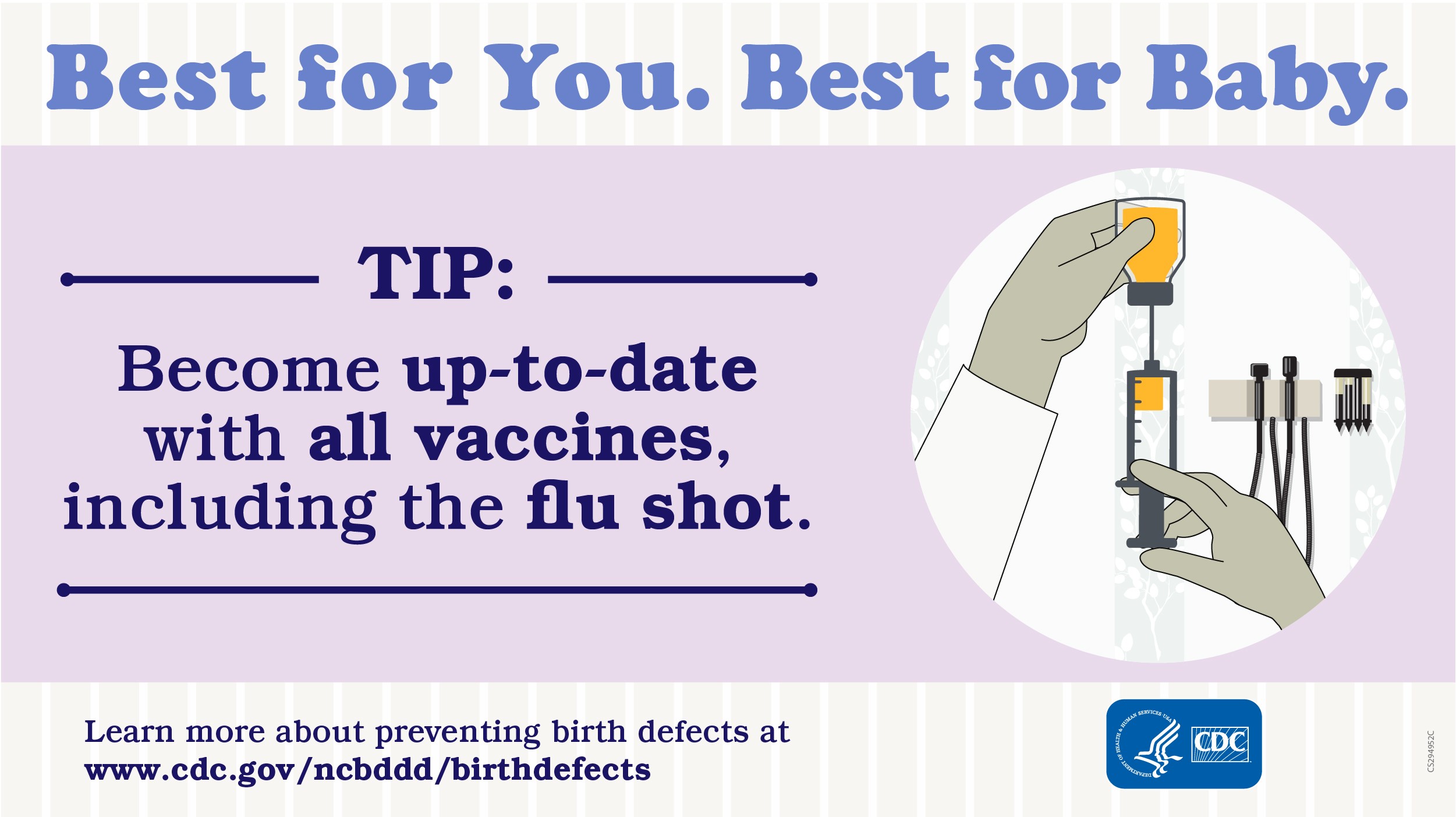To ensure you’re receiving the most up-to-date and accurate information, please choose the correct agency from the homepage. The DHEC website is no longer being updated and will be permanently unavailable Dec. 31, 2024.
Leading Health Experts Emphasize Five Effective Ways To Prevent Birth Defects

Every 4 ½ minutes a baby is born with a birth defect in the United States. It doesn’t have to be that common. That’s why DHEC is joining with leading prenatal health experts from the National Birth Defects Prevention Network (NBDPN), Centers for Disease Control and Prevention, American Academy of Pediatrics, the March of Dimes, Teratology Society and MotherToBaby this month to increase awareness of five critical tips to reduce the chances of having a baby with a birth defect.
The National Birth Defects Prevention Month campaign theme, “Best for You. Best for Baby,” aims to raise awareness about the infants born with birth defects in South Carolina each year. In 2017, 1,142 infants were identified by the SC Birth Defects Program as having a birth defect. While we can’t prevent all birth defects, the following steps increase a woman’s chance of having a healthy baby.
- Be sure to take 400 micrograms (mcg) of folic acid every day.
- Folic acid is very important because it can help prevent some major birth defects of the baby’s brain and spine.
- Book a visit with your healthcare provider before stopping or starting any medicine.
- There are often benefits to continuing treatment throughout pregnancy. Discussing a treatment plan before a pregnancy allows a woman and her health care provider to weigh the pros and cons of all options to keep mom and baby as healthy as possible.
- Become up-to-date with all vaccines, including the flu shot.
- Having the right vaccinations, like the flu and Tdap vaccines, at the right time during pregnancy can help keep a woman and her baby healthy.
- Before you get pregnant, try to reach a healthy weight.
- Obesity increases the risk for several serious birth defects and other pregnancy complications.
- Boost your health by avoiding harmful substances during pregnancy, such as alcohol, tobacco and other drugs.
- There is no known safe amount of alcohol that can be consumed during pregnancy and exposure to it can cause major birth defects.
- Smoking during pregnancy can cause dangerous chemicals to damage the placenta and/or reach the baby’s bloodstream.
- The opioid addiction epidemic has led to a sharp increase in Neonatal Abstinence Syndrome (NAS), premature birth and drug withdrawal in developing babies.
According to Jason Salemi, PhD, MPH and president of the NBDPN, “Birth defects are a common cause of death in the first year of a baby’s life, but change happens through awareness.”
How You Can Help
DHEC encourages health advocates as well as the public to be an active participant in National Birth Defects Prevention Month. Follow and share #Best4YouBest4Baby messages on social media platforms, such as Facebook, Twitter, Instagram and Linkedin. The complete 2019 NBDPN Birth Defects Prevention Month information packet, including this year’s primary tips for birth defects prevention, “Best for You. Best for Baby. 5 Tips for Preventing Birth Defects,” is available online at: www.nbdpn.org/bdpm.php.
Additional Resources to Support Healthy Pregnancies
Centers for Disease Control and Prevention
The CDC’s National Center on Birth Defects and Developmental Disabilities (NCBDDD) strives to advance the health and well-being of our nation’s most vulnerable populations.
American Academy of Pediatrics
Dedicated to the health of all children, providing age-specific health information.
MotherToBaby, a free service of the non-profit Organization of Teratology Information Specialists (OTIS)
Communicate directly with experts about exposures, like medications, vaccines and more during pregnancy and breastfeeding by calling toll free (866) 626-6847, texting questions to (855) 999-3525, live chatting or emailing at
The Teratology Society
An international and multidisciplinary group of scientists, including researchers, clinicians, epidemiologists and public health professionals from academia, government and industry who study birth defects, reproduction and disorders of developmental origin.
March of Dimes
An organization aiming to make sure babies get the strongest start possible as well as reducing the rate of prematurity.
The SC Birth Defects program is committed to improving birth defects prevention, research, and referrals in South Carolina. The program can be reached at scbdp@dhec.sc.gov.